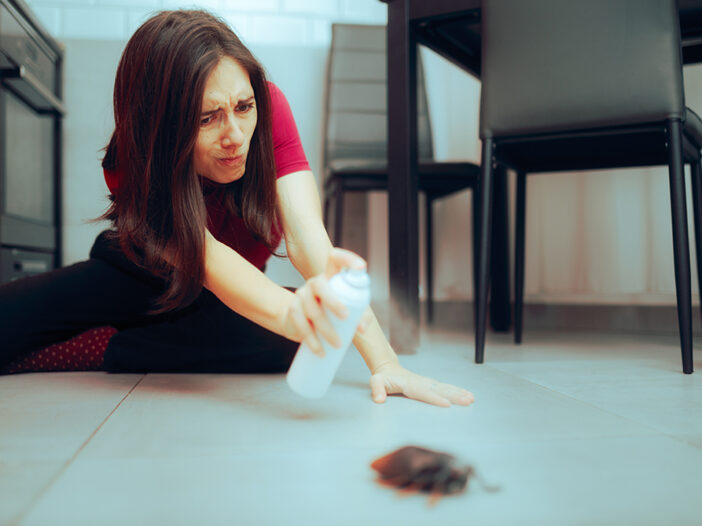
At Northwest Pest Control, we prioritize building relationships with our customers whether they just have questions or if they need our services. These days, with the cost of everything going up and up, we’re getting calls on how you can keep pests out of your home with do-it-yourself methods. As warm temperatures and an abundance of plants and flowers bring pests crawling out of the woodwork, finding effective repellants is important. While there are times when relying on professionals, like the team at Northwest Pest Control, is the only option, let’s look at how essential oils can help deter pests.
There are several essential oils known for their effectiveness in repelling bugs and pests. You may need to experiment with different oils and combinations to find which ones work best for your specific pest problems but here are some of the most commonly used ones:
- Peppermint Oil: Its strong scent is unpleasant to many insects, including ants, spiders, mosquitoes, and mice.
- Lavender Oil: This one repels mosquitoes, moths, fleas, and flies while keeping your home smelling great.
- Citronella Oil: Well-known for its mosquito-repelling properties, it is often used in candles and outdoor sprays. It can also deter other flying insects.
- Tea Tree Oil: With its antifungal and antibacterial properties, it is effective against ants, spiders, and other pests.
- Eucalyptus Oil: This one has a strong scent that repels mosquitoes, flies, and ants. It’s also commonly used as a natural remedy for respiratory issues–a bonus for those fighting seasonal allergies.
- Lemongrass Oil: Because it contains citronella, it repels mosquitoes, flies, and other flying insects.
- Cedarwood Oil: Remember your grandmother’s cedar chest? This oil has that same strong scent that repels moths, ants, and other insects. It’s often used in closets and drawers to deter clothes moths.
- Rosemary Oil: With a fresh woody scent that makes your home smell great, rosemary oil repels mosquitoes and other flying insects.

Knowing what oils to use is just half the battle. The next step is figuring out how to use them. We prefer to combine the oils with water or other solutions to create a spray. Oils can be mixed with regular cleaning solutions and with other natural pest deterrents like vinegar to boost the repellent power.
Essential oils can be directly applied to problem areas as well and used in a diffuser but a spray seems to be a better solution as it’s easy to spritz around entry points like windows and doors, and around places where pests gather like baseboards, countertops and cabinets. Regularly reapplying whatever solution you choose will help keep pests from returning.
While essential oils are a natural and chemical-free alternative to traditional bug repellents, there are some potential risks associated with their use in the home:
Skin or Respiratory Irritation: Essential oils are highly concentrated plant extracts that can cause skin or respiratory irritation or allergic reactions. It’s best to use gloves when applying the oils and always mix them with a carrier oil if you plan to apply the bug repellent directly to your skin. Be cautious in using the oils in a diffuser in homes where people are sensitive to strong scents or have asthma or other respiratory conditions. The diffused oils may cause coughing, wheezing, or difficulty in breathing.
Toxicity to Pets: Some essential oils can be toxic to pets, particularly cats and dogs. Pets may lick or ingest oils applied to surfaces in the home, leading to adverse effects. Research the oils you plan to use or talk to your vet to find out if oils can harm pets. It might be best to only apply the oils in areas out of your pet’s reach.
Staining or Damage to Surfaces: Some essential oils may stain or damage surfaces in your home.Test oils on a small, inconspicuous area before applying them to larger surfaces to ensure they won’t cause damage.
Fire Hazard: Essential oils are highly flammable and should be stored away from heat sources or open flames. When using essential oil diffusers or sprays, be cautious not to place them near candles, stovetops, or other sources of ignition.
While essential oils can be a good natural alternative for pest control, caution should always be taken. To minimize risks when using essential oils as bug repellents in your home, always follow dilution guidelines, keep oils out of reach of children and pets, and discontinue use if any adverse reactions occur.
Remember that while essential oils can be effective at repelling pests, they may not provide the same level of efficacy as chemical insecticides. For severe infestations, it’s best to call the professionals at Northwest Pest Control.